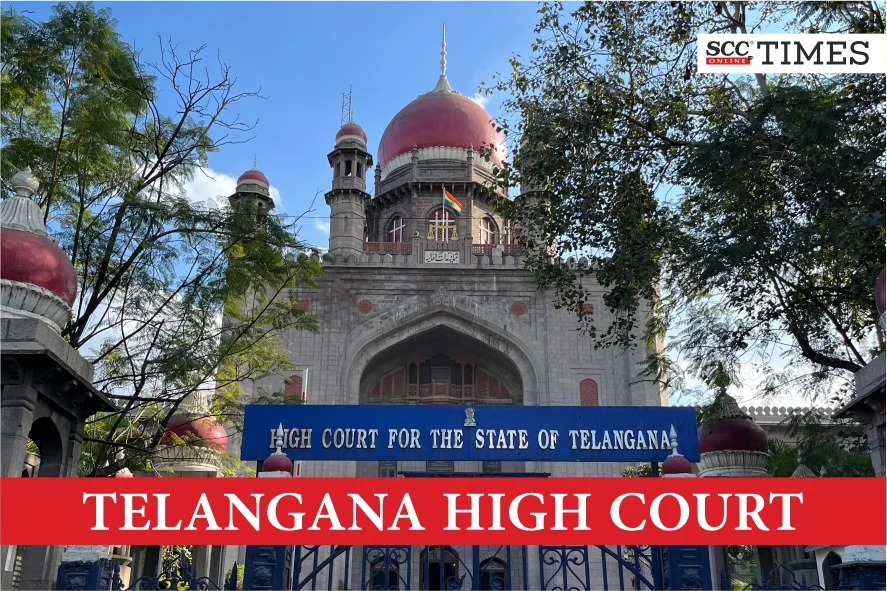Telangana High Court: The present petition was filed challenging the action of respondents in not permitting the women members of Akbhari Sect of Shia Muslims for conducting Majlis, Jashans and other religious prayers in Ibadat Khana situated in premises in Darulshifa, Hyderabad (‘subject premises’). A Single Judge Bench of Nagesh Bheemapaka, J., opined that respondents’ action amounted to violation of fundamental rights guaranteed to petitioner under Articles 14 and 25(1) of the Constitution and thus, directed respondents to permit the women members of Akhbari Sect of Shia Muslim for conducting Majlis, Jashans, and other religious prayers in the Ibadat Khana situated in the subject premises.
Background
Petitioner stated that in Ibadat Khana, even Shia Muslim women were entitled to perform Majlis, Jashans, and other religious prayers which was a fundamental right guaranteed to them under the Constitution. Petitioner stated that by the proceedings dated 15-06-2007 issued by the Waqf Board, it enabled Shia Muslim women to conduct Majlis in the Ibadat Khana. Petitioner also submitted that Respondent 3, Muttawali Committee of lbadath Khana Hussaini, a self-styled Committee, was also sensitized that Akbari Sect of Shia community were not being allowed to perform Jashans, Majlis, and other religious prayers in tune with Wakfnama, on the contrary, Respondent 3 was permitting Shia Muslim women of Usooli Sect for performing activities which were not mentioned in the Wakfnama.
Petitioner stated that several representations to the Telangana State Waqf Board to permit Shia Muslim women to conduct Majlis, Jeshans, and other religious prayers, but so far, no action was taken by them.
Counsel for petitioner submitted that Articles 14 and 25(1) of the Constitution guarantee all the citizens the right to equality and freedom of conscience, freedom to profess, practice and propagate religion and the action of respondents in denying access to the women of Akhbari Sect to perform Majlis, Jashans, and other religious prayers in the Ibadat Khana was contrary to the proceedings dated 15-06-2007 of the Waqf Board and it amounted to discrimination and violation of fundamental rights.
Analysis, Law, and Decision
The Court observed that nowhere, in the Holy Book, the Almighty prohibited women from entering prayer halls to offer their prayers and Chapter 2 Albakarah 222-223 made it evident that except during a particular period which was given as ‘rest period’ for women by the Nature itself, there was no bar against women to offer prayers.
The Court thus relied on the proceedings dated 15-06-2007 and opined that when the Waqf Board permitted Shia Muslim women to enter prayer halls, then why they have been prohibiting Akhbari Sect of the same community to enter Ibadat Khan. The Court stated this itself manifested clear discrimination on respondents’ part.
The Court relied on Indian Young Lawyers Assn. (Sabarimala Temple-5J.) v. State of Kerala, (2019) 11 SCC 1, and observed that the Supreme Court in clear and categorical terms, held that the Constitution by way of Article 25(1) conferred on every individual in society without distinction of any kind whatsoever, freedom of conscience, freedom to profess, practice and propagate religion.
Thus, the Court opined that respondents’ action amounted to violation of fundamental rights guaranteed to petitioner under Articles 14 and 25(1) of the Constitution and thus, directed respondents to permit the women members of Akhbari Sect of Shia Muslim for conducting Majlis, Jashans, and other religious prayers in the Ibadat Khana situated in the subject premises.
This Court vide order dated 11-12-2023, directed respondents to forthwith permit the women members of Akbhari Sect of Shia Muslim for conducting Majlis, Jashans, and other religious prayers in the Ibadat Khana situated in the subject premises. The Court stated that Akhbari sect of Shia Muslim were not allowed to perform Majlis, Jashans, and other religious prayers, whereas Vusooli Sect of the same community were allowed which, was a clear discrimination.
The Court noted that the Waqf Board also categorically stated that Ibadath khana Hussaini absolutely belonged to Shia community and was meant for both Akbhari and Vusooli Sects including Shia women and they had strictly instructed the then Secretary, Shia Imamia Ithna on 15-06-2007 to permit women members of Shia community to perform Majalis-e-Shahadath of Shahzadi Farima in Ibadath khana Hussaini Darusshifa, Hyderabad.
Thus, the Court allowed the writ petition in terms of the interim order dated 11-12-2023.
[Anjumane Alavi, Shia Imamia Ithna Ashari Akhbari (Regd) Society v. State of Telangana, 2024 SCC OnLine TS 1651, decided on 25-07-2024]
Advocates who appeared in this case:
For the Petitioner: P. Venugopal, Senior Counsel for Mir Lukman Ali
For the Respondents: GP; Ari Abu Akram, Standing Counsel; N. Sameena, Counsel








